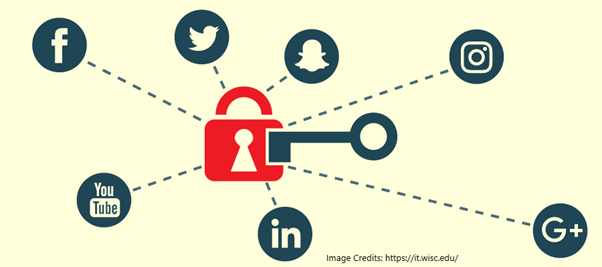The UP Anti-Terror Squad(ATS) recently arrested two aspiring Mujahideen. The two middle-aged men, Saddam Sheikh and Rizwan Khan were actively posting radical content on their social media. Their aim was to connect with terrorists and join the organizations. Their story is remarkably similar to the movie ’72 Hoorain’ where guns and militants, in addition to the promise of ‘Jannat’ and nubile ‘Hoors’, attract men towards ‘Jihad’.

The Story of Saddam Sheikh:
Saddam Sheikh, a resident of UP, was living in Bengaluru. While he earned his living by working as a driver for NTC, he was also actively searching for a terrorist organization to train him for Jihad. Social media was his research tool on terrorism and a medium to express solidarity with terror outfits. He confessed to ATS officials that his views were strongly influenced by Ansar Ghazwat-ul-Hind and Hizbul Mujahideen terrorist Burhan Wani. His long-term aim was Ghazwa-e-Hind and his aspiration was Sharia Law in India.
Saddam considers himself a fan of Osama bin Laden, Zakir Musa, Riyaz Naikoo, and Sameer Tiger. The court’s decision on Babri Masjid enraged Saddam to become a Mujahideen. His phone had a large collection of photos and videos of these terrorists. Saddam was also in touch with Pakistani terror groups using the banned app IMO. He wanted to learn bomb-making from terror gurus online. He planned to form a terror outfit in India to destroy the Indian system from within.
The story of Rizwan Khan:
Rizwan Khan is a 23-year-old Kashmiri youth from Poonch, who had lived in Uttar Pradesh for some time. He was working as a security guard in Bihar at the time of his arrest. Like Saddam, he was also actively searching for terror gurus on social media. He used social media to promote terror groups and the Ghazwa-e-Hind agenda. He was building a network of like-minded misguided Muslim youths from different parts of the country. Rizwan primarily wanted to avenge the death of the A++ terrorist Sameer Tiger. In his own words, he was ‘waiting for his turn’ to serve Allah by forming a Jihadi group and wreaking havoc in India.
Social Media’s Role in Increasing Global Terrorism
As a Medium of Influence:

Social media has emerged as a powerful tool that is easily exploited by terror outfits. The terrorists spread their ideologies, recruit members, and incite violence using platforms like Facebook, Twitter, and YouTube. These platforms are increasingly being used by terrorists to gain access to a global audience. The terror outfits remain unchecked while they disseminate their extremist messages and propaganda with ease online. The film ’72 Hoorain’ also portrays this modus operandi of the Jihadi groups.
Terrorist organizations utilize various techniques like videos, images, and persuasive narratives to glorify violence. They radicalize individuals and recruit new members using false materials to evoke emotions, exploit grievances, and create a fake sense of belonging and purpose among gullible individuals.
Therefore, social media platforms have become virtual breeding grounds for online communities that support and propagate extremist ideologies and terrorism. They have become echo chambers that provide a sense of validation and reinforce existing misguided beliefs. They create a sense of security in susceptible individuals while terrorists and extremists radicalize their thinking.
The Indian government has banned 14 apps like Crypviser, Safeswiss, Wickrme, BChat, Nandbox, Conion, IMO, Element, Enigma, Zangi, Mediafire, and many others. These apps allow terror outfits to communicate securely and coordinate attack plans covertly.
As a Medium of Finance:

The role of social media is not limited to recruitment and propaganda dissemination of extremist content. It also plays a significant role in fundraising and financing activities. Terrorists leverage online platforms to solicit funds from sympathizers. This enables them to sustain their operations and expand their networks. Encrypted messaging apps, private groups, and cryptocurrency transactions can transfer funds with relative anonymity to terror groups.
Terrorists exploit the widespread adoption of digital payment systems and the decentralized nature of cryptocurrencies to bypass traditional banking channels and international regulations. The ease and speed of these transactions, coupled with the difficulty of tracking them, make social media an attractive platform for fundraising activities.
Lessons for the Indian Government

The Indian government is constantly trying different means to counter the use of social media as a facilitator for terrorism. This phenomenon requires close collaboration between governments across the world, global tech giants, and society. Misuse of social media platforms can only be stopped by implementing stricter content moderation policies. Global tech giants must develop advanced algorithms to detect and remove extremist content. The Indian government must start free digital literacy programs to educate users about the dangers of online radicalization. In addition, the government must increase efforts to disrupt the illicit financial networks of terror groups. This is a crucial step to eradicate resources that enable terrorist organizations in carrying out their deadly operations
Combating the spread of terrorist content is an ongoing battle. Thus, constant vigilance and proactive measures are absolutely essential in this war against terrorism. Moreover, India must develop self-evolving tactics to counter terror outfits on social media platforms. However, the biggest role of Indian society. Vigilant members of society can mitigate the impact of these dangerous ideologies. Moreover, responsible use of social media is an individual choice that must be encouraged and advised for all age groups. India’s fight against terrorism does not end at the border, it is a fight of ideologies. This fight is also fought at home against extremists and radicals. And it is fought on social media platforms by responsibly reporting terrorist activities online.


